The following analysis of the greater Las Vegas real estate market is provided by Windermere Real Estate Chief Economist Matthew Gardner. We hope that this information may assist you with making better-informed real estate decisions. For further information about the housing market in your area, please don’t hesitate to contact your Windermere agent.
A MESSAGE FROM MATTHEW GARDNER 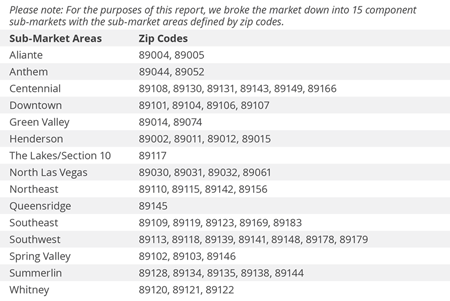
Needless to say, any discussion about the U.S. economy, state economy, or housing markets in the first quarter of this year is almost meaningless given events surrounding the COVID-19 virus.
Although you will see below data regarding housing activity in the region, many markets came close to halting transactions in March and many remain in some level of paralysis. As such, drawing conclusions from the data is almost a futile effort. I would say, though, it is my belief that the national and state housing markets were in good shape before the virus hit and will be in good shape again, once we come out on the other side. In a similar fashion, I anticipate the national and regional economies will start to thaw, and that many of the jobs lost will return with relative speed. Of course, all of these statements are wholly dependent on the country seeing a peak in new infections in the relatively near future. I stand by my contention that the housing market will survive the current economic crisis and it is likely we will resume a more normalized pattern of home sales in the second half of the year.
HOME SALES
- A total of 7,876 homes were sold in the first quarter of 2020, an increase of 15.8% over the same period a year ago, but 3.4% lower than in the final quarter of 2019.
- Pending sales rose 1.1% year-over-year and, somewhat counterintuitively, were 8.4% higher than in the fourth quarter of 2019. Clearly the impacts of COVID-19 took longer to be felt in Nevada, but we are sure to see slowing activity in the second quarter.
- Sales rose in all the sub-market areas contained in this report, with significant increases in Anthem, Aliante, and Southwest Las Vegas.
- The significant impacts of COVID-19 are being felt across the country, but given Las Vegas’ dependence on the leisure and hospitality sectors, it should be assumed that sales will drop until normal business operations resume.
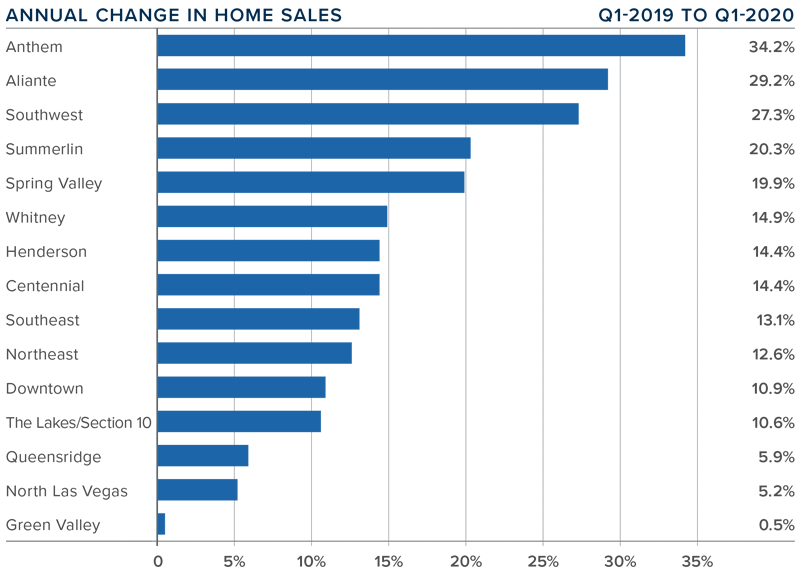
HOME PRICES
- Home prices in the area rose 5.2% compared to the first quarter of 2019 to an average of $327,017. Prices were also up 0.4% compared to the final quarter of 2019.
- Annual home price growth was impressive and continues to rise at rates well above most of the nation.
- Prices rose in all but two sub-markets compared to the same quarter last year. The strongest price growth was in the Northeast Las Vegas sub-market, where prices were up 10.1%.
- Even as conventional mortgage rates remain very attractive, many businesses in the Las Vegas market have temporarily shuttered and this is likely to cause price growth to slow or turn negative until the market returns to normal business operations.
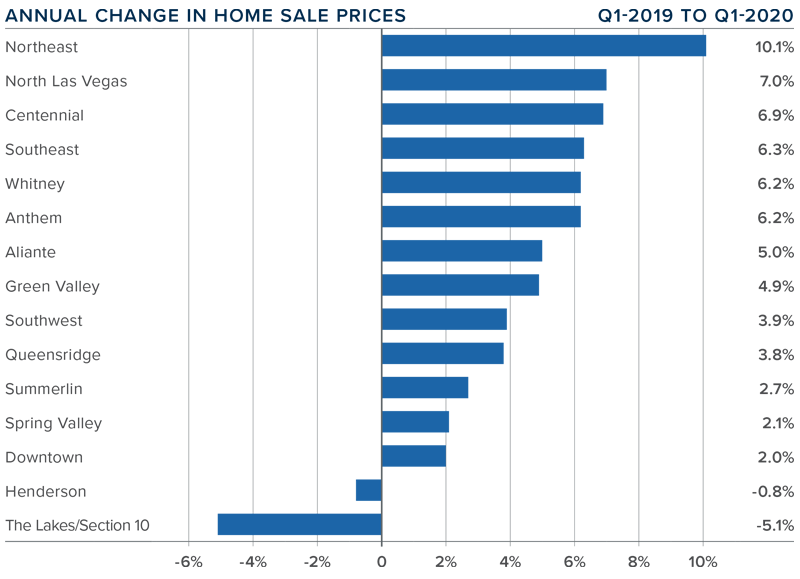
DAYS ON MARKET
- The average time it took to sell a home in the region rose three days compared to the first quarter of 2019.
- Compared to a year ago, days-on-market rose in ten sub-markets, was static in one, and dropped in four.
- Regionwide, it took an average of 49 days to sell a home in the first quarter of 2020 and 2 days longer to sell a home than during the final quarter of 2019.
- The greatest drop in market time was in the Queensridge neighborhood, while the largest increase in market time was in the Downtown neighborhood.
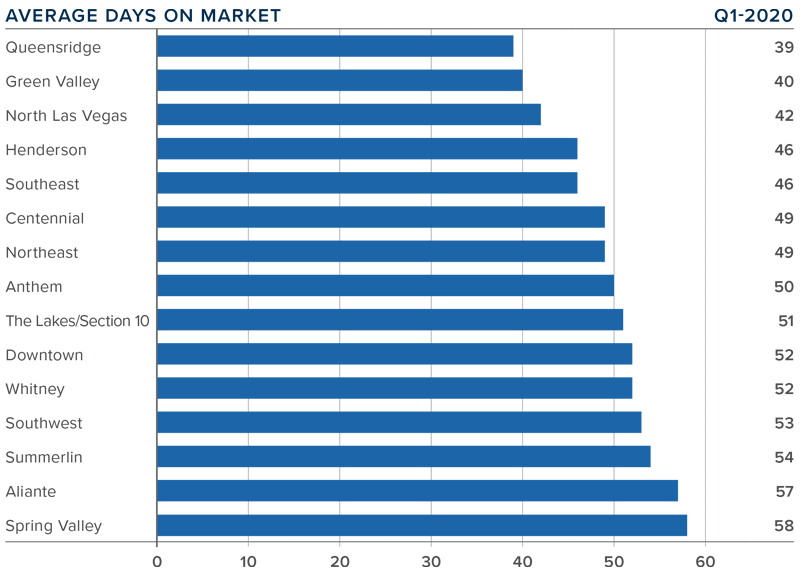
CONCLUSIONS
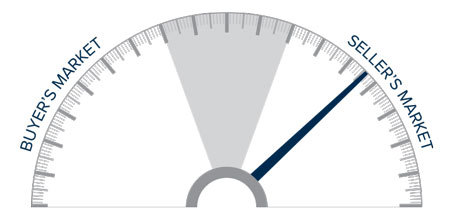 This speedometer reflects the state of the region’s real estate market using housing inventory, price gains, home sales, interest rates, and larger economic factors.
This speedometer reflects the state of the region’s real estate market using housing inventory, price gains, home sales, interest rates, and larger economic factors.
Given the current economic environment, I have decided to freeze the needle in place until we see a restart in the economy. Once we have resumed “normal” economic activity, there will be a period of adjustment with regard to housing. Therefore, it is appropriate to wait until later in the year to offer my opinions about any quantitative impact the pandemic will have on the housing market.
ABOUT MATTHEW GARDNER
 As Chief Economist for Windermere Real Estate, Matthew Gardner is responsible for analyzing and interpreting economic data and its impact on the real estate market on both a local and national level. Matthew has over 30 years of professional experience both in the U.S. and U.K.
As Chief Economist for Windermere Real Estate, Matthew Gardner is responsible for analyzing and interpreting economic data and its impact on the real estate market on both a local and national level. Matthew has over 30 years of professional experience both in the U.S. and U.K.
In addition to his day-to-day responsibilities, Matthew sits on the Washington State Governors Council of Economic Advisors; chairs the Board of Trustees at the Washington Center for Real Estate Research at the University of Washington; and is an Advisory Board Member at the Runstad Center for Real Estate Studies at the University of Washington where he also lectures in real estate economics.
 Facebook
Facebook
 X
X
 Pinterest
Pinterest
 Copy Link
Copy Link



